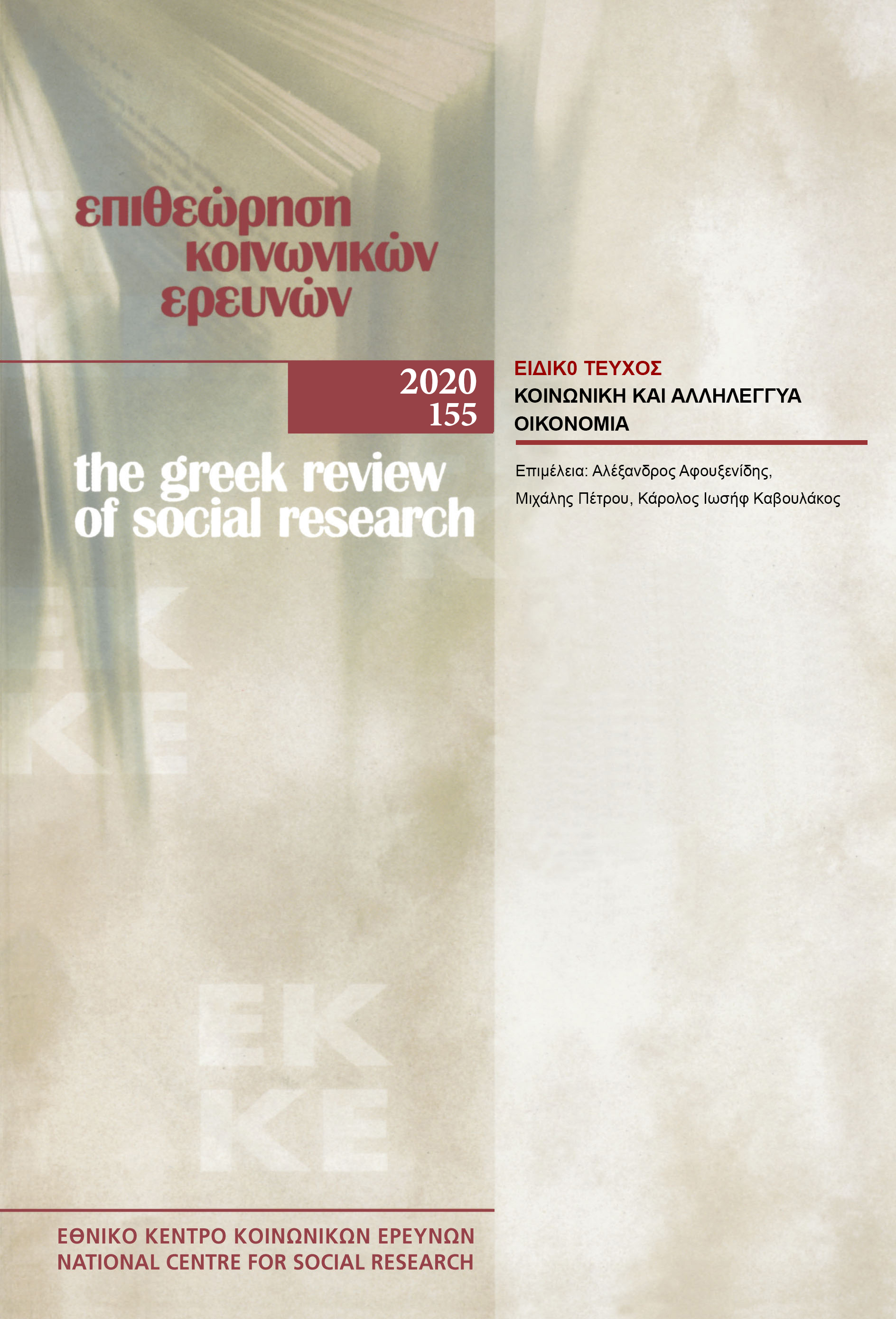Tools from below: Making agricultural machines convivial

Περίληψη
Εργαλεία από τα κάτω: Κάνοντας τα αγροτικά εργαλεία συμβιωτικά
Αυτό το άρθρο διερευνά την ομότιμη παραγωγή και τη δημοκρατικοποίηση της γνώσης και της τεχνολογίας στο πεδίο της γεωργίας. Ενώ οι περισσότερες υπάρχουσες ακαδημαϊκές εργασίες που ασχολούνται με τις παραπάνω έννοιες εστιάζουν στον ψηφιακό κόσμο, οι δύο περιπτωσιολογικές μελέτες μας –μια θεριστική μηχανή για όσπρια και ένα εργαλείο πάκτωσης πασσάλων περίφραξης– εξετάζουν τι συμβαίνει όταν αυτές οι έννοιες λειτουργούν για την παραγωγή υλισμικού. Οι μελέτες περίπτωσης αναπτύσσονται στο πλαίσιο του Σχεδιάζουμε Παγκόσμια, Κατασκευάζουμε Τοπικά (DGML) και εστιάζουν στο μικρο-επίπεδο των πρακτικών και της ρητής και άρρητης γνώσης που κινητοποιούνται όταν χρησιμοποιούμε ανοιχτές τεχνολογίες για να παράγουμε εργαλεία για τον πρωτογενή τομέα. Οι παρατηρήσεις και η ανάλυση που παρουσιάζονται στο άρθρο αυτό στοχεύουν στο να παράσχουν μια καλύτερη κατανόηση τού πώς τα ψηφιακά κοινά αλληλεπιδρούν με την κατανεμημένη φυσική κατασκευή, ποιες διαδικασίες μπορεί να οδηγήσουν στο άνοιγμα του υλισμικού και στη δημιουργία συμβιωτικών/φιλικών προς τον χρήστη τεχνολογιών και να πληροφορήσουν τη μελλοντική έρευνα και τις προτάσεις πολιτικής.
Λεπτομέρειες άρθρου
- Πώς να δημιουργήσετε Αναφορές
-
Pantazis, A. (Alexandros), & Meyer, M. (2020). Tools from below: Making agricultural machines convivial. Επιθεώρηση Κοινωνικών Ερευνών, 155, 39–58. https://doi.org/10.12681/grsr.24828
- Ενότητα
- Άρθρα

Αυτή η εργασία είναι αδειοδοτημένη υπό το CC Αναφορά Δημιουργού – Μη Εμπορική Χρήση 4.0.
Οι συγγραφείς των άρθρων που δημοσιεύονται στην Επιθεώρηση Κοινωνικών Ερευνών διατηρούν τα δικαιώματα πνευματικής ιδιοκτησίας επί των άρθρων τους, δίνοντας στο περιοδικό το δικαίωμα της πρώτης δημοσίευσης. Άρθρα που δημοσιεύονται στην Επιθεώρηση Κοινωνικών Ερευνών διατίθενται με άδεια Creative Commons 4.0 και σύμφωνα με την άδεια μπορούν να χρησιμοποιούνται ελεύθερα, με αναφορά στο/στη συγγραφέα και στην πρώτη δημοσίευση για μη κερδοσκοπικούς σκοπούς.
Το Εθνικό Κέντρο Κοινωνικών Ερευνών διατηρεί το δικαίωμα να δημοσιεύει, να αναπαραγάγει, να παρουσιάζει στο κοινό, να διανέμει και χρησιμοποιεί άρθρα που δημοσιεύονται στην Επιθεώρηση Κοινωνικών Ερευνών σε οποιοδήποτε μέσο και μορφή είτε μεμονωμένα είτε ως μέρη συλλογικών έργων, για όλο τον χρόνο διάρκειας προστασίας της πνευματικής ιδιοκτησίας και για όλες τις χώρες του κόσμου. Αυτό περιλαμβάνει ενδεικτικά και όχι αποκλειστικά το δικαίωμα δημοσίευσης των άρθρων σε τεύχη της Επιθεώρησης Κοινωνικών Ερευνών, αναπαραγωγής και διανομής μεμονωμένων αντιγράφων των άρθρων, αναπαραγωγής ολόκληρων των άρθρων σε άλλη έκδοση του Εθνικού Κέντρου Κοινωνικών Ερευνών, καθώς και αναπαραγωγής και διανομής των άρθρων ή περίληψης αυτών με χρήση πληροφορικού συστήματος αποθετηρίου.


